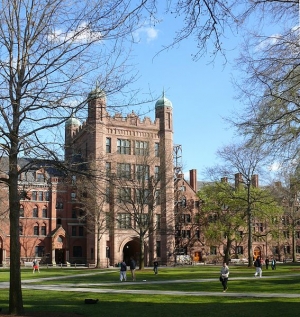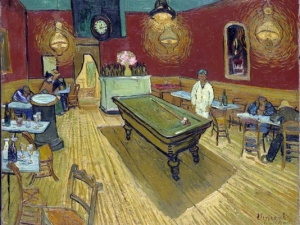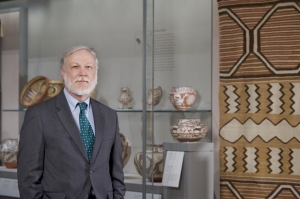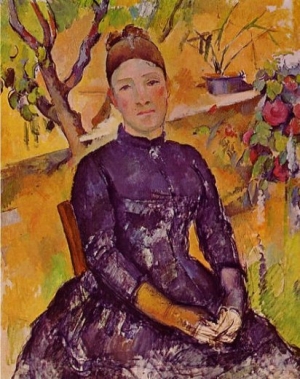|
Displaying items by tag: yale university
A federal appeals court has sided with Yale University in a dispute over the ownership of a $200 million Vincent van Gogh painting.
The 2nd U.S. Circuit Court of Appeals last week upheld a 2014 ruling by a lower court that dismissed the claims of Pierre Konowaloff. He said the Dutch painter’s “The Night Cafe” was stolen from his family during the Russian Revolution.
Orazio Gentileschi's Danaë (1621) will arrive at Sotheby's New York this January with an estimate of $25 to $35 million. The 17th-century painting provides a lens to reflect on just how far the Old Masters market has come in the past few decades.
The painting, which has an extensive exhibition history, including shows at the Getty, the Metropolitan Museum of Art, and Yale University, also has an interesting past in terms of provenance.
The recently published Louis I. Kahn in Conversation: Interviews with John W. Cook and Heinrich Klotz, 1969–70 provides fresh insights into the philosophy and genius of one of America’s greatest twentieth-century architects. Transcribed from audio recordings of candid conversations that have never before been published in their entirety, these interviews with Kahn (1901–1974) were conducted by Heinrich Klotz, a young German architectural historian who was then a visiting professor at Yale University, and John W. Cook, who was teaching architecture at Yale Divinity School. The volume has been edited by Jules David Prown, Paul Mellon Professor Emeritus of the History of Art at Yale University and Senior Research Fellow at the Yale Center for British Art, and Karen E. Denavit, Information Analyst at the Center.
Yale’s Beinecke Rare Book & Manuscript Library and the Yale University Art Gallery are acquiring the Meserve-Kunhardt Collection, one of the nation’s most historically significant photographic collections and the definitive assemblage of portraits of Abraham Lincoln.
“With this remarkable acquisition, Yale has secured its place as the premier institution for the study of American photography from the Civil War to the Gilded Age,” says Yale President Peter Salovey. “I am delighted that faculty, students, and scholars from around the country and around the globe will have the opportunity to study this collection, learn from it, and share that knowledge.”

The Lens Media Laboratory (LML), a new research facility that will apply scientific principles to the characterization and conservation of photographs and other lens-based media, has been created as part of the Yale Institute for the Preservation of Cultural Heritage (IPCH), a center dedicated to improving the science and practice of conservation globally. Paul Messier, a renowned photography conservator, will join Yale as the inaugural head of the LML. Funding for the endowed directorship and laboratory start-up has been provided by an anonymous donor.
“This extraordinary gift will catalyze the development of new methods for scholars to classify, preserve, and interpret photographs and other lens media, both physical and digital,” said Stefan Simon, director of the IPCH. “In Paul Messier, we have successfully attracted one of the foremost experts in the world, whose track record of working across a diverse range of constituencies and disciplines — from museums to individual collectors and humanities to the sciences — will be a tremendous asset to this endeavor.”
On Monday, January 26, 2015 at 5PM, Jay Robert Stiefel, a lawyer and well-known collector and historian of American decorative arts, will give a lecture entitled “Leather Apron Men: Benjamin Franklin & Philadelphia’s Artisans” at Yale University in New Haven, Connecticut. The event is free and open to the public.
The illustrated talk will center on Benjamin Franklin’s work as an artisan as well as his role in fostering the public appreciation of his fellow craftsmen. America’s foremost founding fathers and the country’s first printing magnate, Franklin tended toward self-deprecation, writing in a 1740 issue of his “Pennsylvania Gazette” that he was no more than “a poor ordinary mechanick of this City.”
Two oil paintings, including one owned by Yale University in the United States, have been certified as being the work of Spanish surrealist artist Salvador Dali, officials said on Tuesday.
Art experts from the Gala-Salvador Dali Foundation knew that the two works existed but up until now they had been unable to locate and authenticate them.
"We had identified the works but we did not know where they were or how to link them to Dali. We thought they were made by him but we had to verify," the director of the foundation's research department, Montse Aguer, told AFP.

A federal judge has dismissed the claims of a Russian man who said that he was the rightful owner of Vincent van Gogh’s “The Night Cafe.” The painting, which was created in 1888, has been on display at the Yale University Art Gallery in New Haven, Connecticut, for around 50 years.
Pierre Konowaloff, who claimed that the work was stolen from his family during the Russian revolution, asked Yale for the return of the painting or $120 million to $150 million in damages. Yale sued in 2009 to assert its ownership rights and to prevent Konowaloff from claiming the work. Judge Alvin Thompson sided with the University, citing the Act of State doctrine, which says that every sovereign state is bound to respect the independence of every other sovereign state, and that courts will not criticize another government’s acts done within its own territory.
Konowaloff claimed that his great-grandfather purchased “The Night Cafe” in 1908 and that his property was nationalized by Russia during the Communist revolution. The painting was later sold by the Soviet government.
Yale received the van Gogh painting through a bequest from alumnus Stephen Carlton Clark, who had purchased the painting from a New York City gallery in 1933 or 1934.

Winterthur Museum, Garden & Library in Wilmington, DE has established the Wendell Garrett Award, which honors the memory of Wendell Garrett, an esteemed member of the Winterthur Program in Early American Culture Class of 1957. Garrett, who passed away in 2012, went on to become one of the most distinguished experts on Americana and American-origin decorative arts in the world. He also made frequent appearances on the television series Antiques Roadshow.
The first recipient of the Wendell Garrett Award will be Gerald W.R. Ward, Senior Consulting Curator and Katharine Lane Weems Senior Curator of American Decorative Arts and Sculpture Emeritus at the Museum of Fine Arts, Boston. Like Garrett, Ward has influenced a generation of graduate students and young professionals, most recently as an adjunct faculty member of the Sotheby's Institute Program in American Fine and Decorative Art. Through his work at Yale; Winterthur; Strawbery Banke; and the Museum of Fine Arts, Boston, Ward has had an indelible effect on the field of American decorative arts.
Ward will receive the inaugural Wendell D. Garrett Award on November 9, 2013 during the 50th Annual Delaware Antiques Show in Wilmington.

In December 2010, Pierre Konowaloff, the heir to Russian art collector Ivan Morozov, filed a lawsuit claiming that he was the rightful owner of Paul Cézanne’s (1839-1906) painting Madame Cézanne in the Conservatory (1891), not the Metropolitan Museum of Art. Konowaloff explained that Morozov’s art collection was seized by the Bolshevik regime in 1918 and that when Stephen Clark, the collector and museum trustee who bequeathed the work to the Met in 1960, first bought the painting from Knoedler & Company in 1933, he did not carry out due diligence. Accusing the Met of wrongful acquisition, possession, display and retention, Konowaloff demanded that the work be returned to him and requested restitution for monetary damages.
On December 18, a judge in the 2nd District Court of Appeals in Manhattan ruled that the Met could keep the Cézanne masterpiece, as the museum remains the work’s rightful owner. The Met has stood behind their right to the painting since the beginning of the entanglement with Konowaloff. The lawsuit was initially dismissed in 2011 by judge Shira Scheindlin who said that a U.S. court has no basis for questioning a decision made by a foreign government on distant soil. After the rejection of Konowaloff’s appeal, Met officials can finally leave the dispute behind them.
Konowaloff filed a similar suit against Yale University in 2009 over Vincent van Gogh’s (1853-1890) The Night Café (1888). Konowaloff claimed that the van Gogh painting was also stolen during the Russian Revolution and bought by Clark regardless of its questionable history.
|
|
|
|
|